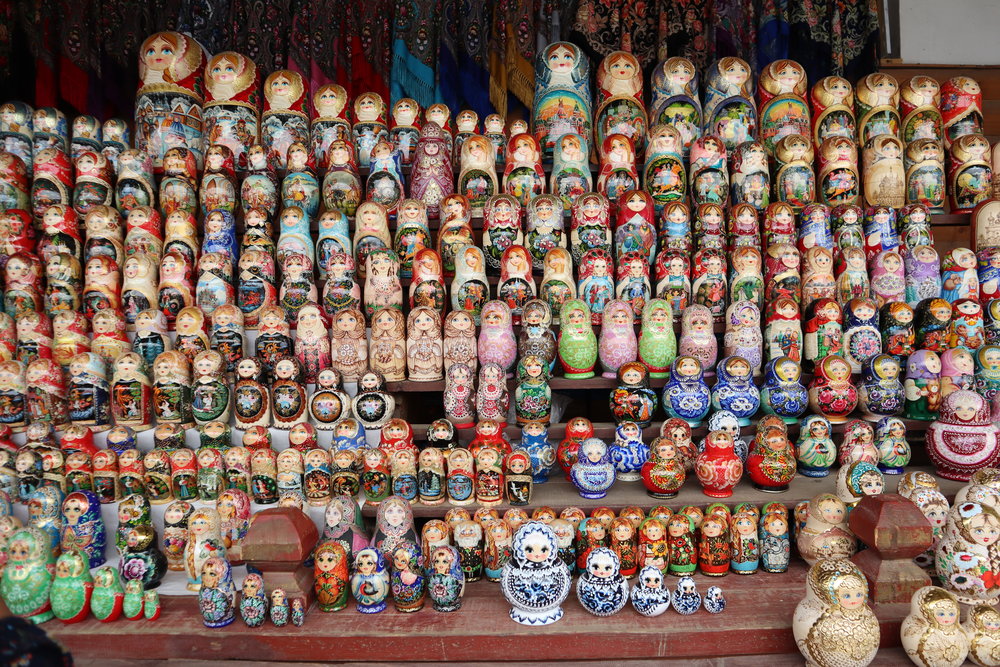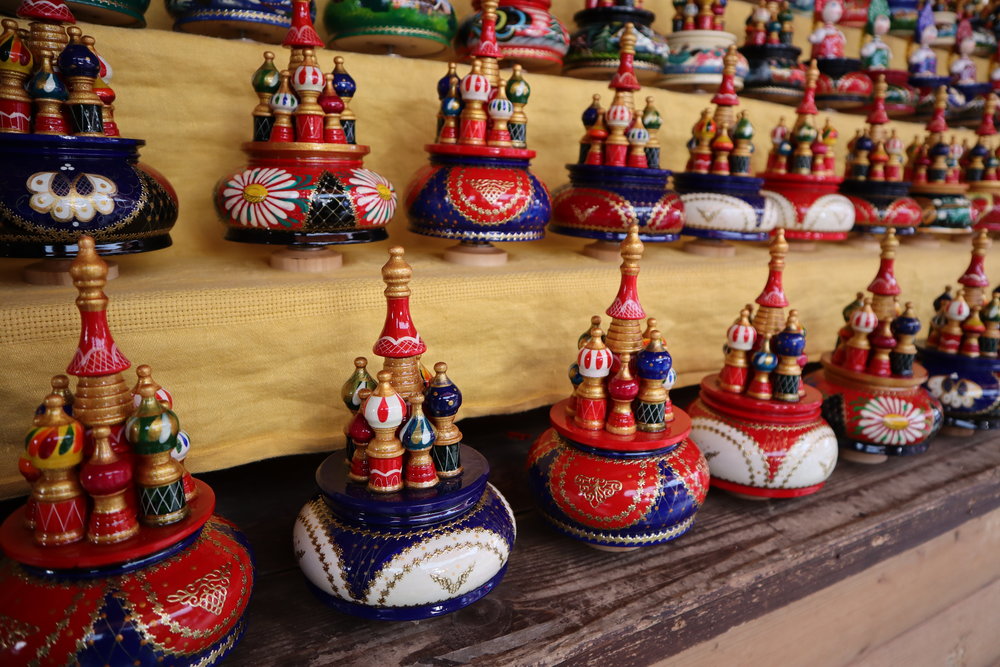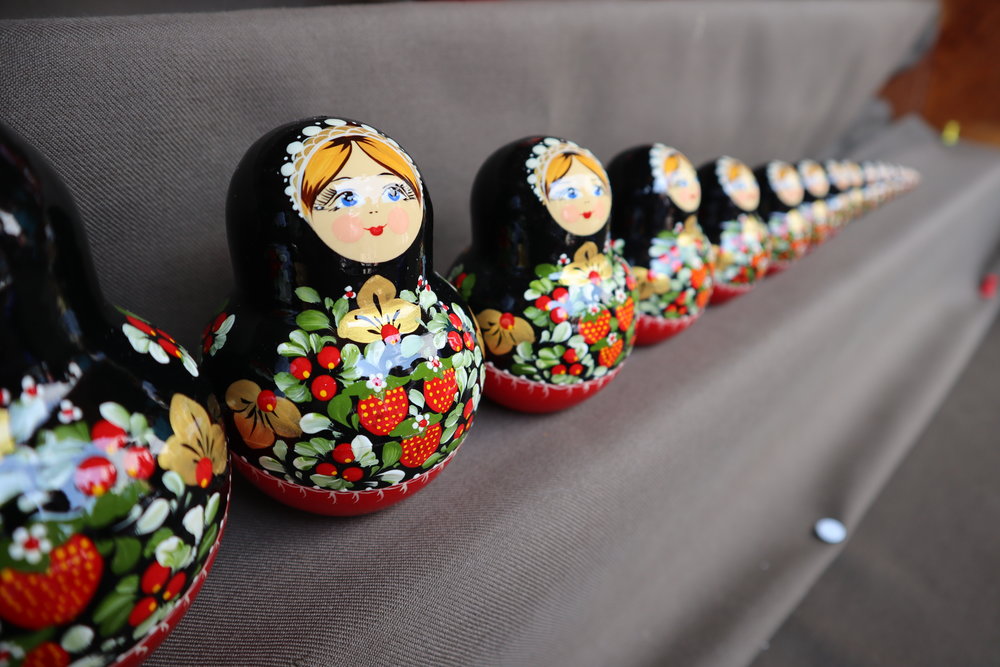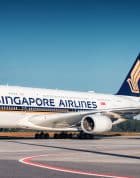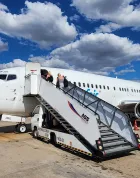As a first-time visitor, I was simultaneously concerned whether a one-week stay in Moscow would be enough time or too much time.
On one hand, most Russians whom I had spoken to had reacted with mild surprise that I was spending a week in Moscow, usually shrugging their shoulders with a cryptic turn of phrase – “many people spend less time there” or something to that effect – and a wry smile.
On the other hand, with the FIFA World Cup in town, I expected this visit to be different from any other trip I’d take to Moscow in the future, so I didn’t mind spending some extra time absorbing the special atmosphere in town.
In the end, I think a week was just about the perfect length of time to explore the sprawling metropolis at a leisurely pace. For one, Russian architecture and design is truly quite unique in its artistry, and Moscow, as the capital, plays host to endless streets full of majestic buildings – ranging from the flowery Muscovite style to the blocky Soviet-era socialist influences – radiating outwards from Red Square, which deserve to be admired with patience and endeavour.
Then you’ve got the abundance of worthy museums, churches, and attractions befitting of the historic capital, cultural hub, and seat of power of a civilization as storied and influential as Russia.
And finally, with the world’s largest sporting event in town, matches taking place at two stadiums, and a FIFA Fan Fest abuzz with fans from every country, there was no shortage of evening activities to keep us occupied during our week-long sojourn.
Let me walk you through the highlights of my visit and share my overall impressions of the Russian capital city.
Red Square & Environs
Public life in Moscow is centred around Red Square, the second-largest public square in the world right after Beijing’s Tiananmen. As with most city squares of its type, Red Square is surrounded on all four sides by important landmarks; for the first-time visitor, much of the sightseeing will be concentrated here.
Despite the name, Red Square is shaped more like a rectangle oriented on a northwest-to-southeast axis. On the northwestern edge, the imposing State Historical Museum dominates the perspective, its dark red brickwork portending the impressive public square that lies behind its gates.
The museum’s exhibitions range from the era of Kievan Rus, the predecessor of the modern-day Russian Federation, to the dazzling paintings of the Romanov dynasty. Admission is 500 RUB ($10), and you can buy tickets online at shm.ru.
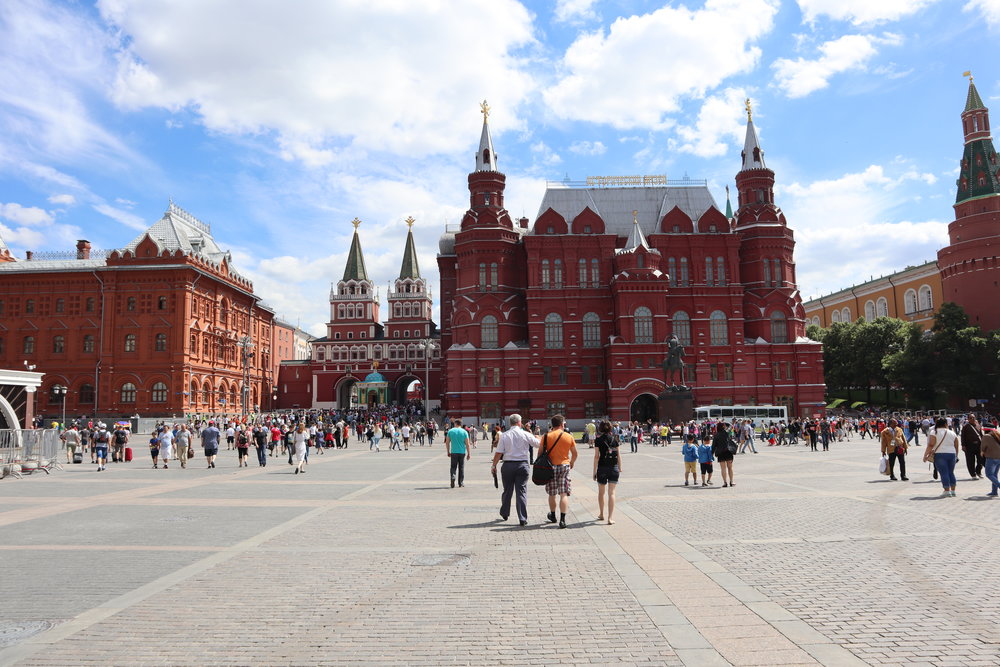
State Historical Museum

Resurrection Gates, towards Red Square
The southwestern long edge is adjacent to the Moscow Kremlin, which is of course the seat of the Russian government but also serves as a massive museum and church complex that’s open to visitors.
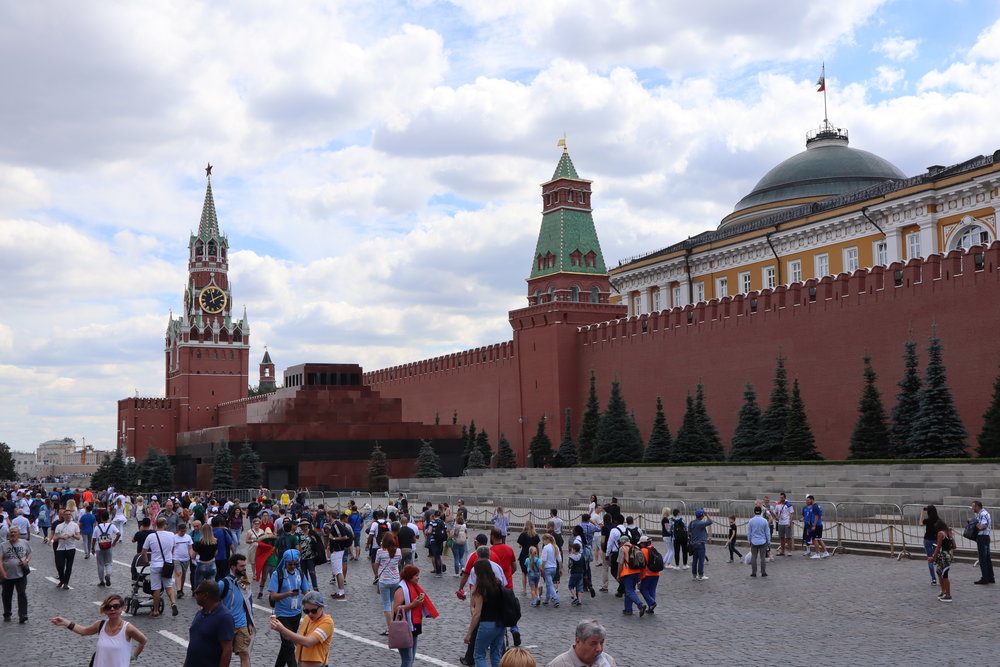
Moscow Kremlin
In front of the Kremlin on the grounds of Red Square is the Lenin Mausoleum, which is only open for a few hours each morning as visitors pass through the darkened halls to witness the preserved body of the Russian revolutionary. Meanwhile, the Kremlin’s distinctive Spasskaya Tower, overlooking the square, is quite a sight to behold, especially in the afternoons as the sun sets behind the fortress’s walls.
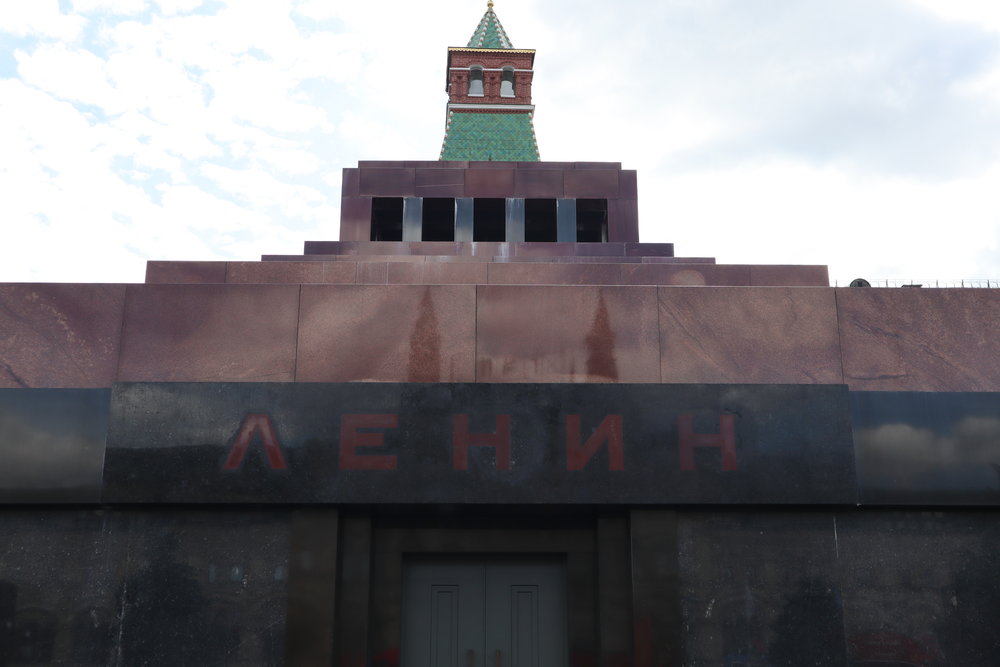
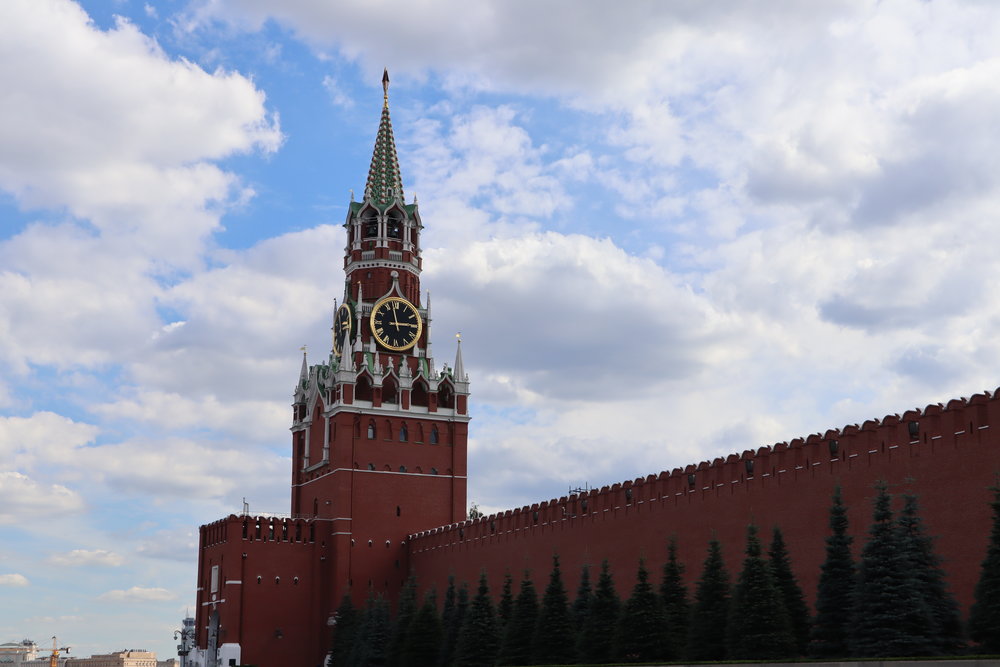
Within the Kremlin, you’ll get to see the Armoury Chamber, a treasure house full of Russian regalia from every era (including the beautiful Fabergé eggs), as well as the Ivan the Great Bell Tower, its golden cupolas rising into the sky. Admission to the Kremlin is 500 RUB ($10), with a separate ticket required for the Armoury Chamber at 700 RUB ($14), and tickets can be purchased online as well.
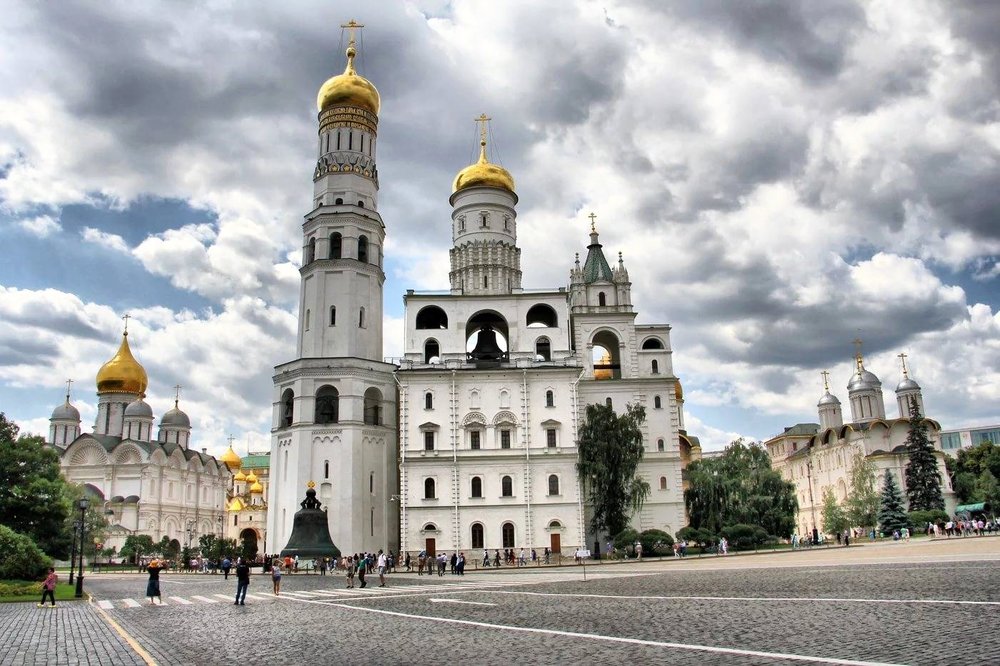
Ivan the Great Bell Tower
Continuing our 360˚ tour of Red Square, we cast our gaze upon St. Basil’s Cathedral, the eye-catching, almost garish “church of churches” of individual buildings with improbably-shaped rooftops clustered together to resemble a multicoloured bonfire rising into the sky, a building that’s come to symbolize Moscow and indeed Russia as a whole.
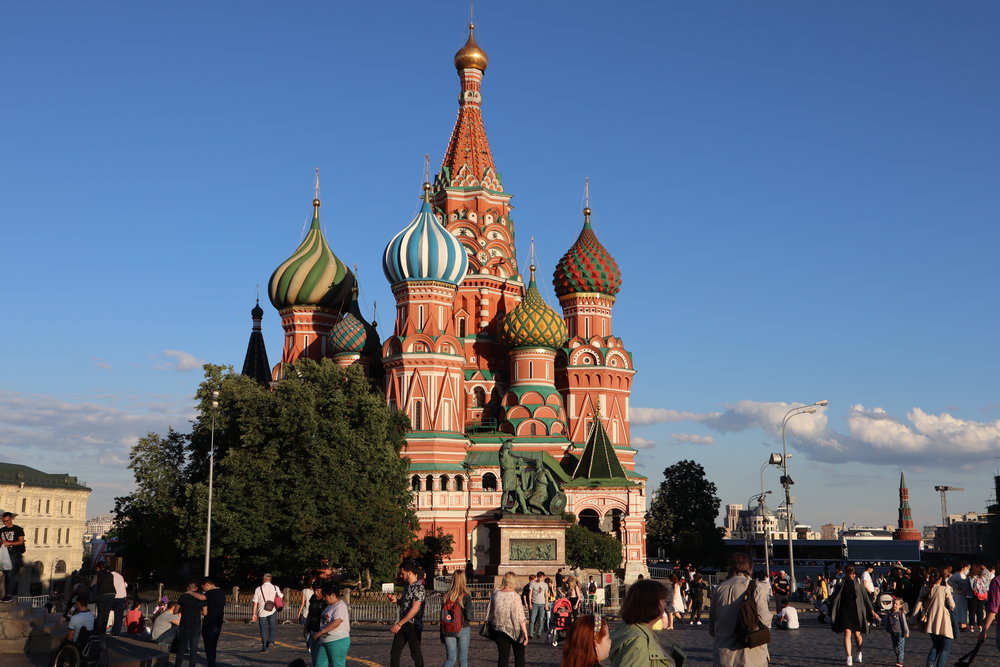
St. Basil’s Cathedral
St. Basil’s architectural influences have confounded scholars and historians, because it has virtually no parallel elsewhere in Russia, and even the identity of the original architect remains somewhat of a mystery. Nowadays it’s no longer used as a place of worship, but rather a museum that tells the story of the cathedral through the tight corridors and winding staircases of its individual interior churches. If you find the outward appearance of St. Basil’s Cathedral striking, wait until you get to admire it from the inside. Admission is 700 RUB ($14) via the State Historical Museum website.
Lastly, moving onto the northeastern long edge of Red Square facing the Kremlin walls, we arrive at the gargantuan GUM shopping centre. The impressive department store building is almost an attraction in its own right, its vaulted ceilings being the crown jewel of its opulent design.
Gastronome No.1 on the ground floor is perhaps one of the most beautiful supermarkets you’ll ever visit, and you can shop for virtually anything within this food lover’s playground, from prized Russian caviar to cheap but delicious piroshki.
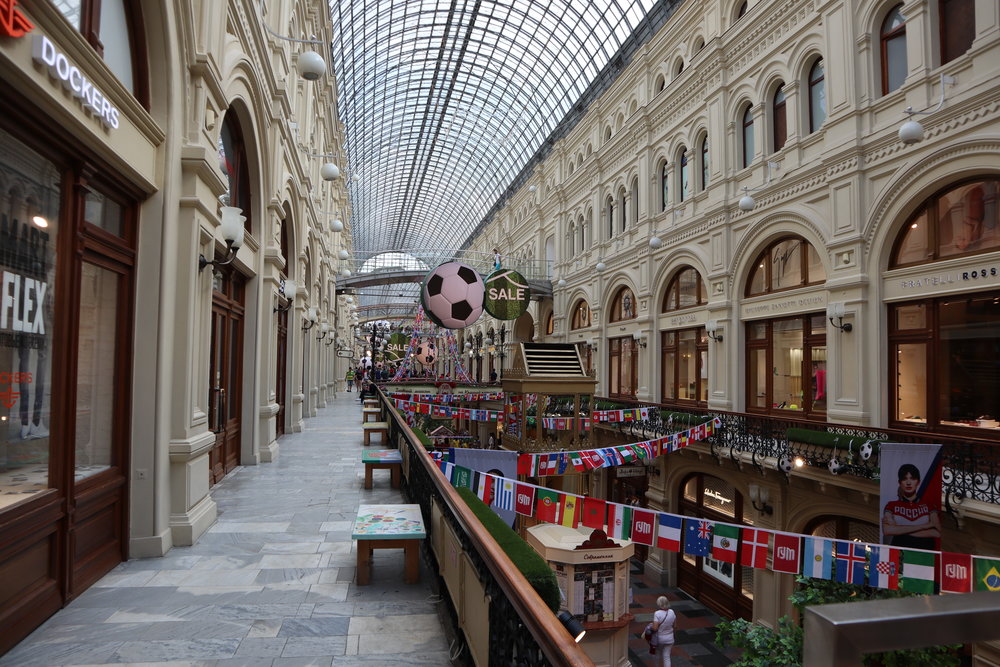
GUM shopping centre
Red Square is located immediately north of the Moskva River, the waterway flowing through the centre of the city. Take the time to stroll along the riverbank and approach Red Square walking up the slight hill in order to admire every colourful spire of St. Basil’s Cathedral as it gradually comes into view. A reader had recommended this particular walk, and I endorse it – it’s very beautiful.
Standing in the middle of Red Square and beholding the grandiose buildings to all sides, one can’t help but wonder about everything that has taken place here over the years – the beheadings of enemy forces by Peter the Great, the processions of worshippers filing out of St. Basil’s Cathedral, the bustle of the public the market that once stood on square grounds. It’s one of the most absorbing points on Earth I’ve been to in recent memory, and highly worth a return visit or two over the course of your time in Moscow.
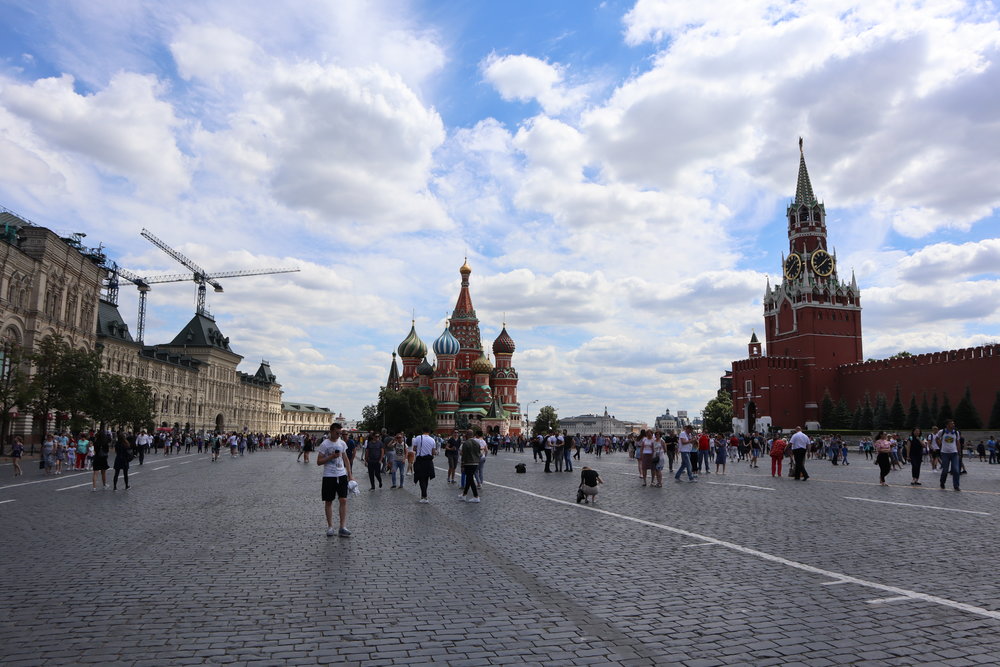
View of Red Square to the southeast
Further Afield: The Arbat, Izmailovo Kremlin, and More…
While the city’s most well-known attractions are clustered around Red Square, there’s no shortage of things to do in the outlying neighbourhoods of Moscow as well. Begin with Arbat Street in the city’s west end, a pedestrian street that’s existed since the 16th century and was once home to many prominent artists and intellectuals. Historic statues and monuments rub shoulders with restaurants and souvenir shops geared towards tourists, which are mostly to be avoided unless it’s overpriced mastrushkas you’re after.
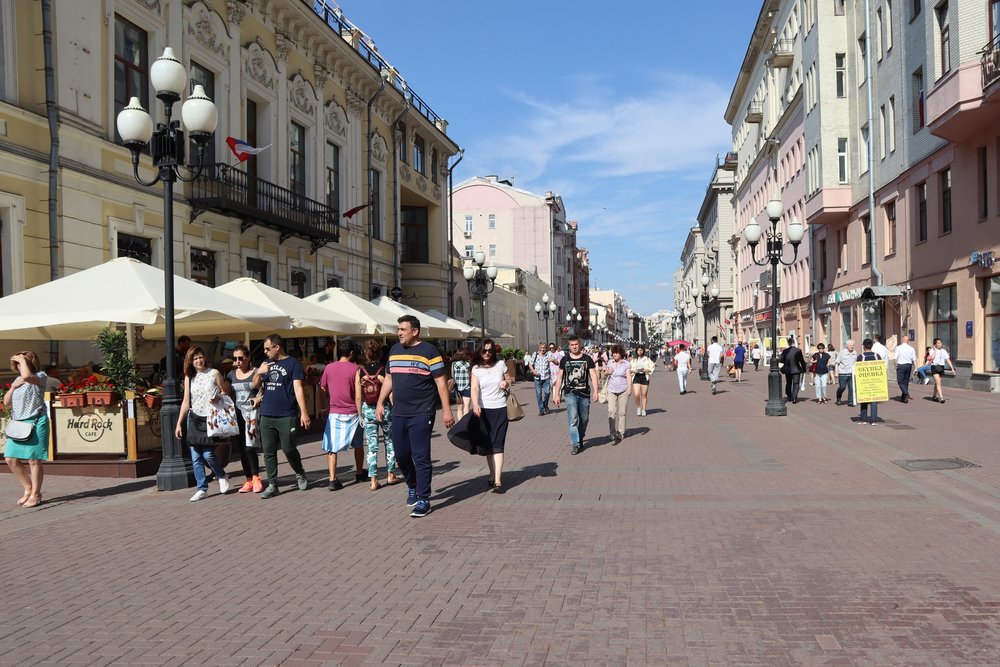
Arbat Street
The Arbat can be accessed from the Arbatskaya subway station, or it can be incorporated into a walking route around the neighbouring area. One thing I particularly enjoyed among my walks through the various parts of Moscow was seeing the mighty Seven Sisters – a group of Stalinist-style skyscrapers that came up in the mid-20th centuries – dotted around town. You can usually catch at least one of these stunning buildings within your view from any point in the city, and they’re truly worth admiring both from afar and up-close.
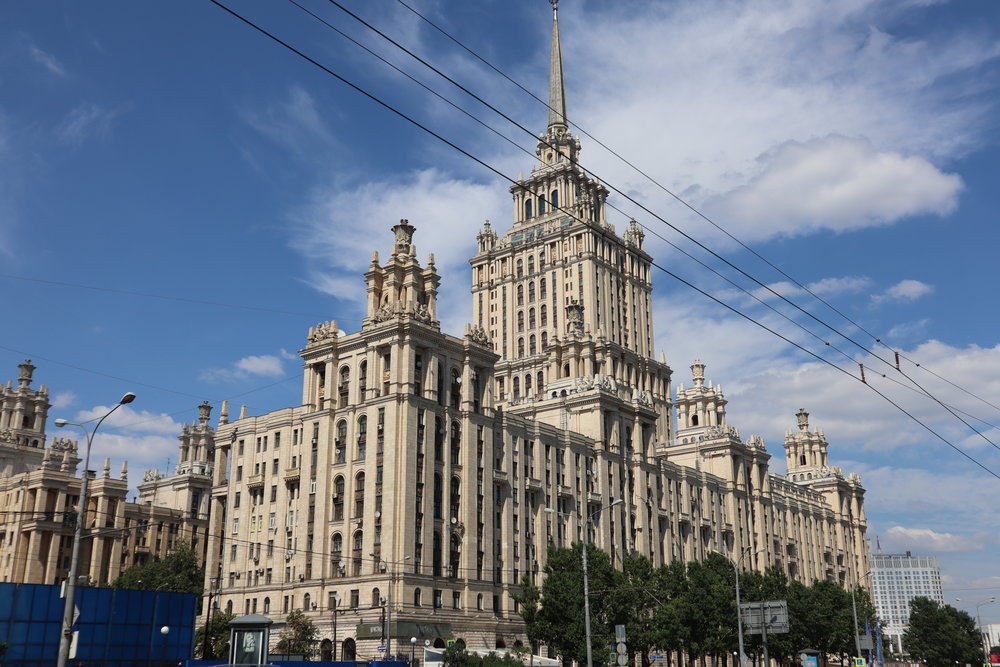
The majestic Hotel Ukraina (now a Radisson hotel), one of the Seven Sisters
Then on the eastern outskirts of town you have the Izmailovo Kremlin, a smaller fort-and-cathedral complex that’s done up in an older, more kitschy style compared to the main Moscow Kremlin.
Nowadays it’s used as an outdoor market and cultural centre; the former has countless rows of reasonably priced Russian trinkets for you to pore over, while the latter is full of quirky “museums”, typically consisting of just one room, where you can indulge in whichever esoteric pursuit – chocolate, vodka, plasticine figures, etc. – tickles your fancy.
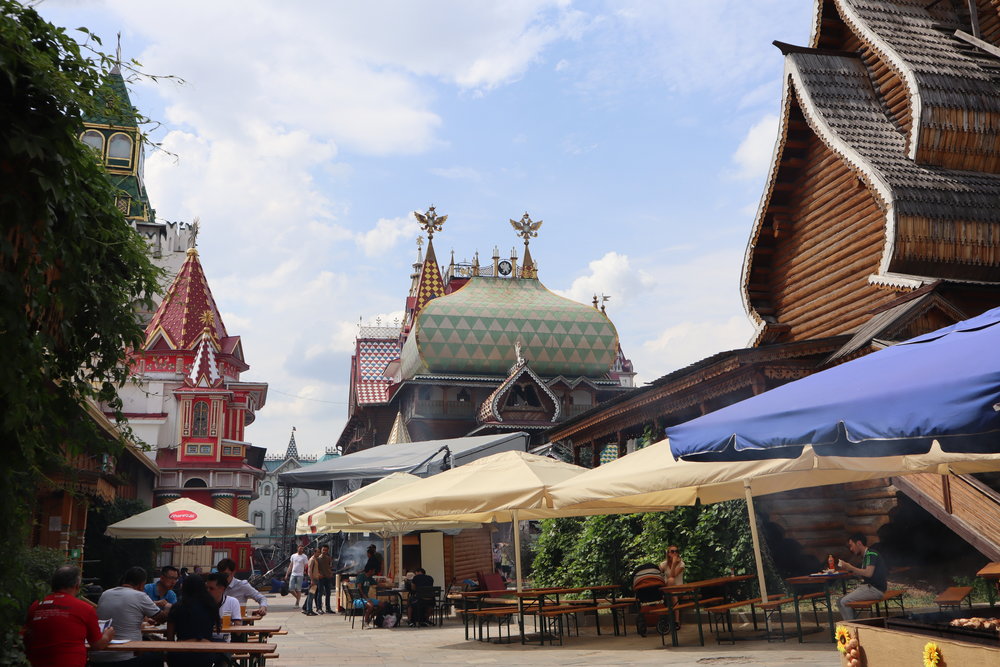
Izmailovo Kremlin
Speaking of esoteric museums, Moscow’s full of them, and while the Izmailovo contingent tend to be smaller and less frequented, there’s dozens of standalone well-curated museums throughout town that are dedicated to things you’d never expect.
One of my favourites was the Museum of Soviet Arcade Machines, not far from Red Square. As a visitor you’re bestowed with a map of the in-house arcade machines and a box of tokens, and you have the freedom of choosing which games to try. Some are actually quite a lot of fun, while others are basically worn-down artefacts that makes the occasional ding. It’s a fascinating window into ordinary life in a bygone epoch, and well worth the 450 RUB ($9) admission.
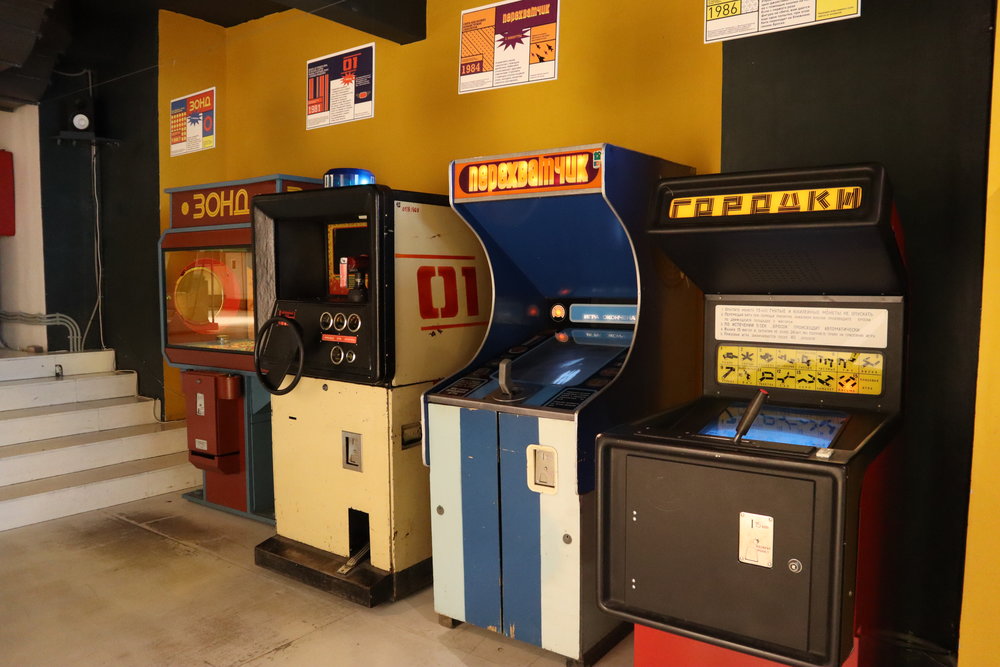
Museum of Soviet Arcade Machines – Games
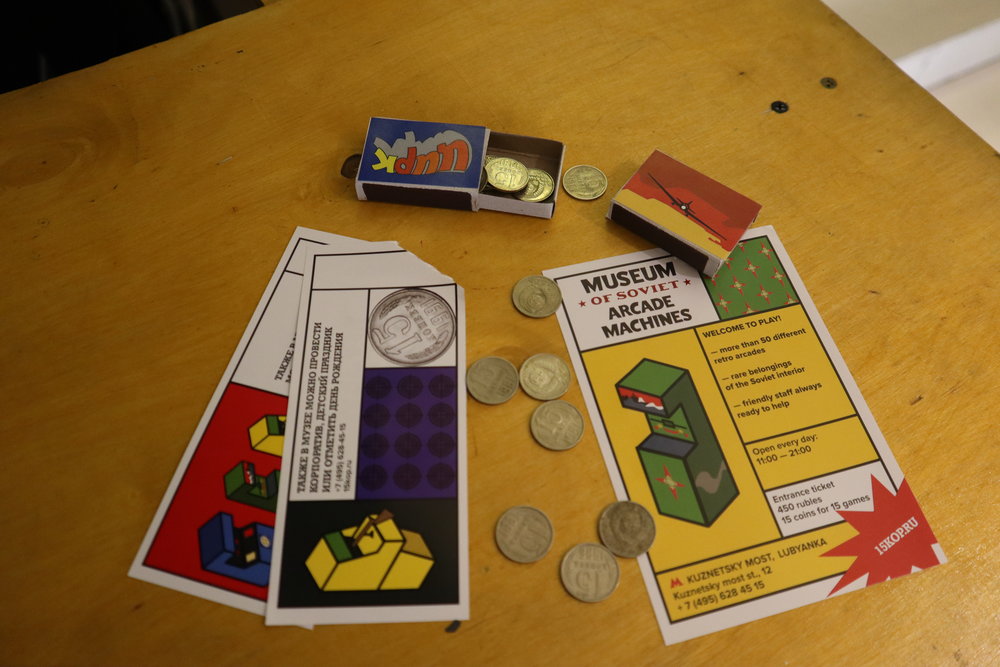
Museum of Soviet Arcade Machines – Tickets and tokens
Moscow is a huge city, so while I’m always an advocate of walking from place to place, you’re often better served by the impressive Moscow Metro, which can be thought of as a tourist attraction in its own right. Vaulted ceilings, improbably long escalators, hand-painted murals, and the occasional Lenin bust will make you feel like you’re passing through a museum as you make your way to your next destination.
The FIFA World Cup 2018
Lastly, the World Cup festivities. We were in Moscow right as the action was moving into a white-hot phase, at the culmination of the group stage and beginning of the knockout games. On the first evening, we headed to the FIFA Fan Fest on Vyrobyovy Gory, where we watched on the big screen together with thousands of fans from all over the world. That was followed by an enthralling Serbia v Brazil match at Spartak Stadium in the city’s northwest, where I had the privilege of watching Neymar’s antics in live-action 😉
[foogallery id=”16934″]
But nothing could compare to the unforgettable match at the Luzhniki Stadium on the eve of our departure to St. Petersburg. The knockout stages had just begun, and Russia were playing the role of underdogs against Spain. Keep in mind that it was sheer fortune that we got to watch Russia play at their national stadium, since we hadn’t known who would be contesting this knockout fixture when buying the tickets.
Nevertheless, an 80,000-strong home crowd roared on as Russia put on a dogged defensive display to keep their technically superior Spanish counterparts at bay, eventually winning on penalties.
The electric atmosphere, the collective rush of emotions as the winning penalty was scored, and the never-ending chants of “RO-SSI-YA, RO-SSI-YA!” during the match – and indeed, throughout the night as we made our way to the train station – will live long in my memory.
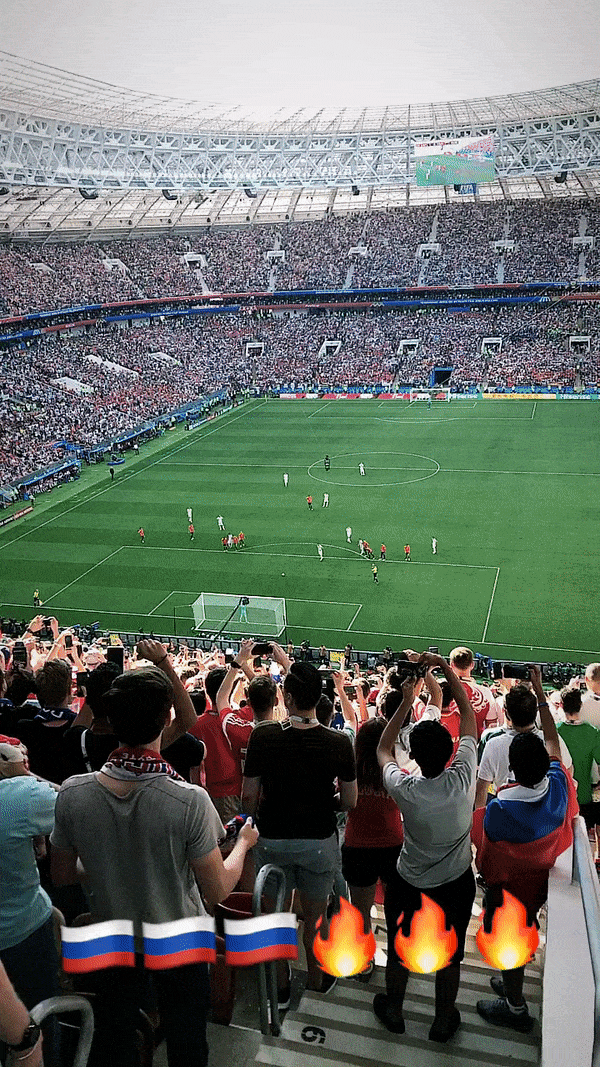
Besides the Russia game, one of my favourite moments of our time in Moscow was in a McDonald’s near the stadium prior to the Serbia v Brazil match, where I was streaming the day’s earlier games on my phone. Big drama was taking shape in Group F – South Korea was beating Germany, on course to knock the holders out of the tournament – and a small crowd had taken their place by our seats, all watching the action on my tiny iPhone screen.
One of the reasons I love football is how it brings people together, and that moment shared with strangers from all over the world – a Russian dad bringing his young son to the World Cup, a Brazilian guy revelling in his rivals’ downfall, a South Korean himself going bonkers – was the perfect embodiment of the collective spirit of the beautiful game.
Russia 2018 was an incredible tournament, and I consider myself beyond privileged to have made the trip there.
Conclusion
To be honest, I didn’t spend as much time as I’d have liked delving into every corner of Moscow, mainly because we were stricken with an illness within the first few days of being there. To me, though, that’s never something to be regretful over, since it leaves plenty to do for next time.
My lasting impression of the city is one of splendour and grandiosity, the wow-factor compounded by the festival mood around the city during my time there. Walking around town and taking in the varied and often contrasting architecture, I felt a certain element of introspection about Moscow as well, as though it were still in a phase of deep reflection as it emerges out of the Soviet times and searches for an identity in the modern world.
It’s a fascinating place to be, that’s for sure, and it turns out a week wasn’t enough in the end, as I would yet return for one night at the lavish St. Regis Moscow Nikolskaya hotel. Stay tuned for that one.


